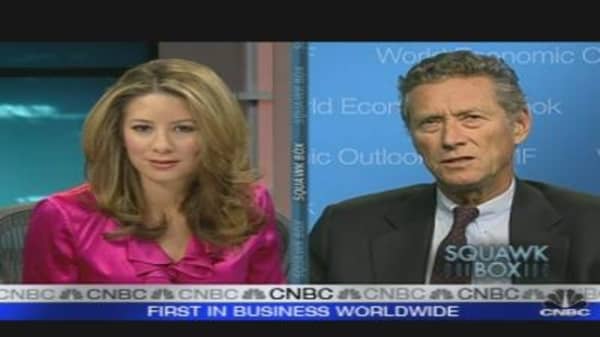Growth in advanced economies has hit a road bump and using quantitative easing (QE) measures will not help them to speed up growth, said Olivier Blanchard, chief economist of the International Monetary Fund.
"I think we may see a bit more quantitative easing in the U.S. and in Europe but I don't think we should fool ourselves. We have used most of the monetary ammunition we have," Blanchard told CNBC Thursday.
Speculation is mounting that the Federal Reserve may be the next to jump on the QE bandwagon, after the Bank of Japan cut the overnight call rateto between zero and 0.1 percent and set up a $60 billion fund to buy assets ranging from government bonds to commercial paper.
"Good quantitative easing or credit easing will give us a few basis points… that's nothing to ignore but it is not going to allow the advanced economies to grow much faster," he cautioned.
Instead, what needs to be done is fiscal consolidation in advanced countries and external rebalancing — where net exports need to rise in the developed nations while the rest of the world reduce their trade surplus.
Blanchard said that this would increase employment in the developed world, in turn ensuring a sustained recovery in those economies.
The IMF's World Economic Outlook forecasts that emerging economies are set to grow nearly three times faster than rich nations in 2011, but they need to do more to rebalance global growth.
"What has to happen in general is a fairly wide appreciation of emerging market currencies, not to the same extend in all countries but in a number of countries. That is not happening on the scale at the speed at which we need it to have it happen," lamented Blanchard. (Watch his second interview here.)




